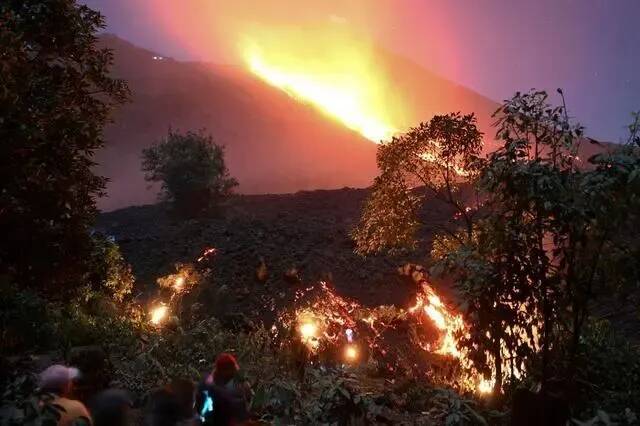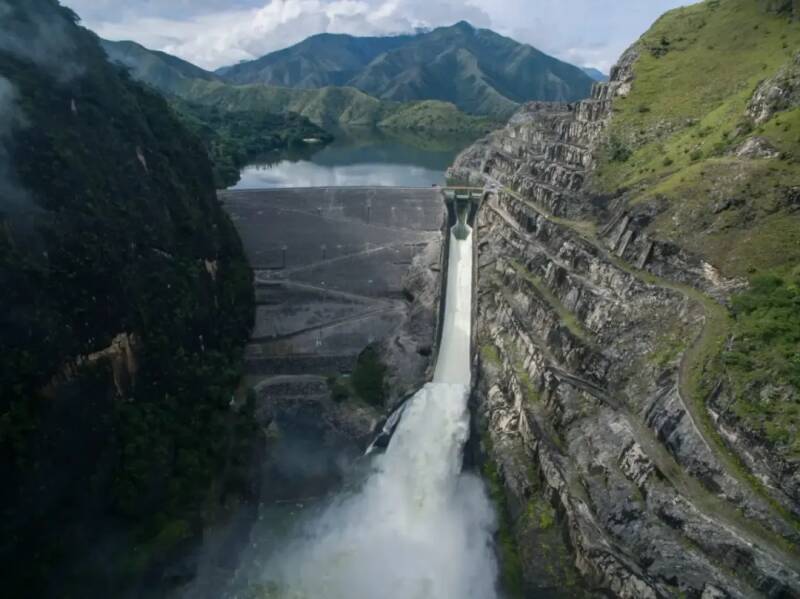The coffee industry in Guatemala has been affected by several forest fires and power shortages caused by El Ni ñ o.
Recently, according to the official online account of the Guatemala National disaster reduction Coordination Agency, the dry season has entered since the beginning of November 2023, and El Ni ñ o weather has exacerbated the dry season, resulting in a number of fires in Guatemala. According to data, there are a total of 855 fires in Guatemala, of which 609 are forest fires. This situation has a significant impact on the country's agriculture and cultivation, as Guatemala mainly exports cash crops such as coffee, bananas, sugar and cardamom as the main source of foreign exchange earnings.
Among them, the more seriously affected is the mountain fire in the Agua volcano region in southern Guatemala, and it is also the area where the coffee producing areas Antigua and Acatenango are located. It is understood that the hill fire has affected more than 40 hectares of forest and vegetation areas, local residents have been safely evacuated under the guidance of the government, causing no casualties, but it is expected that the local planting industry will be affected to varying degrees by the island.

In addition, due to insufficient rainfall, drought and increased electricity demand caused by El Ni ñ o, the Ministry of Energy and Mines of Guatemala (MEM) recently declared a state of emergency for the national interconnected power system (SNI). And the state of emergency will last from March 18 to May 31, and may be extended if El Ni ñ o continues. The head of the MEM department said that the main reason for entering the state of emergency is the reduction of hydroelectric power due to too little precipitation.
According to the power regulatory agency, due to the El Ni ñ o phenomenon, the rainfall is reduced, and so is the power supply. In February, hydroelectric power generation was 17% lower than the historical average. The Chixoy reservoir has a water storage capacity of 75% and a water level of 796.7 meters, a drop of 1.08m compared with seven days, so other more power generation must be used to fill the gap in hydroelectric power.

However, traditional power plants in Guatemala already provide basic power generation in the national power system, but there is no more inventory to meet the increased demand for power generation and to make up for the decline in hydroelectric power. In addition, due to the influence of El Ni ñ o, the drought of the Panama Canal has reduced the capacity of ships, which will increase the transportation time of fuel to Guatemala by about 4 weeks. As a result, people in the coffee industry say that this situation will affect the operation of coffee growers and coffee processing plants, as well as higher production costs due to the lack of electricity and the increase in electricity charges.
However, the country is looking for a solution, and the Guatemalan Chamber of Industry (CIG) issued a statement reiterating that Guatemala needs investment in electricity and expressed its willingness to cooperate with the authorities to solve the problem. In addition, the Guatemalan Ministry of economy recently held a meeting on the Guatemala Economic Action Plan, saying that it will attract nearly US $1.4 billion in foreign direct investment in 2024, 48 projects in agriculture, such as food, beverages and coffee, may attract US $381 million, and the electrical, electronics and manufacturing industries will attract capital inflows to improve the country's economy.
Important Notice :
前街咖啡 FrontStreet Coffee has moved to new addredd:
FrontStreet Coffee Address: 315,Donghua East Road,GuangZhou
Tel:020 38364473
- Prev

Costa Rican Coffee Bean | introduction of Mozart Coffee Bean in Carnett Manor in Tara Pearl area
In the coffee growing belt, the American region happens to be in the coffee growing belt. There are many famous coffee growing countries in the Americas, such as Panama, Honduras, Costa Rica, Guatemala and so on. Costa Rica is famous as the first country in Central America to grow coffee and bananas because of its commercial value.
- Next

Gibraltar Cup Story of Blue bottle Coffee: how to make Gibraltar Coffee (Gibraltar) at Home?
If you have been to the store of the well-known chain Blue bottle Coffee, you are likely to see a drink called Gibraltar, which is not only unfamiliar but also easy to mispronounce compared to other familiar names. So what kind of coffee is it? Qianjie will find out with you today.
Related
- What grade does Jamaica Blue Mountain No. 1 coffee belong to and how to drink it better? What is the highest grade of Blue Mountain coffee for coffee aristocrats?
- What are the flavor characteristics of the world-famous coffee Blue Mountain No. 1 Golden Mantelin? What are the characteristics of deep-roasted bitter coffee?
- Can I make coffee a second time in an Italian hand-brewed mocha pot? Why can't coffee be brewed several times like tea leaves?
- Hand-brewed coffee flows with a knife and a tornado. How to brew it? What is the proportion of grinding water and water temperature divided into?
- What is the difference between Indonesian Sumatra Mantinin coffee and gold Mantinin? How to distinguish between real and fake golden Mantelin coffee?
- What does bypass mean in coffee? Why can hand-brewed coffee and water make it better?
- Unexpected! Ruixing Telunsu lattes use a smoothie machine to foam milk?!
- % Arabia's first store in Henan opens into the village?! Netizen: Thought it was P's
- Does an authentic standard mocha coffee recipe use chocolate sauce or powder? Mocha Latte/Dirty Coffee/Salty Mocha Coffee Recipe Share!
- What is the difference between Vietnam egg coffee and Norway egg coffee? Hand-brewed single product coffee filter paper filter cloth filter flat solution!

